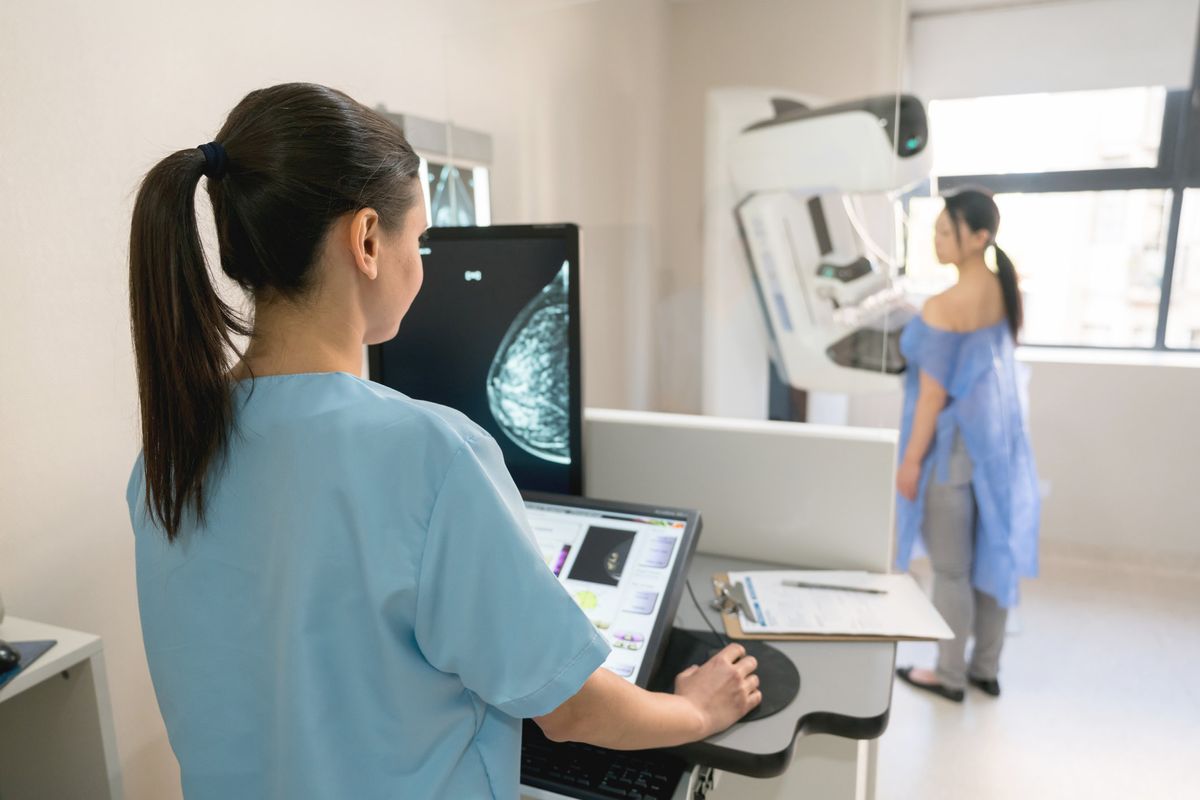What kind of breasts do you have? We're not talking size, but density. Nearly half of all women over age 40 who get mammograms are found to have dense breasts, which means there is a lot of fibrous or glandular tissue and not much fat in the breasts. Glandular tissue produces breast milk, while fibrous tissue and fat give breasts their shape.
Don't know if you have dense breasts? You're not alone. In one survey, only 58% of the women who responded had heard of breast density and just 49% knew it could affect breast cancer detection.
Why might breast cancer be missed? Well, the problem is fibroglandular (dense) tissue shows up on a mammogram as white, but so do cancers. So, it's harder to spot tumors in women with dense breasts through mammography alone than in women with non-dense breasts. As such, the American Society of Breast Surgeons recommends supplemental imaging such as breast MRI or ultrasound be considered in addition to annual mammography for women with dense breasts, and for women with personal histories of breast cancer and dense breasts, the American College of Radiology (ACR) recommends an annual breast MRI.
Also, women with dense breasts are more likely to develop breast cancer compared to women with non-dense breasts, and the risk increases with increasing breast density. A study looking at cancer risk in more than 200,000 women aged 40 and older found it was one of the most common risk factors in pre-menopausal and postmenopausal women. That's one reason Congress directed the US Food and Drug Administration in 2019 to establish a minimum standard for including information about breast density on mammography reports. The updates are still in development and not yet finalized.
Most states and the District of Columbia already require some level of breast density notification to patients after a mammogram. (See if your state is one of them here.)
Understanding Breast Density
The American College of Radiology uses the Breast Imaging Reporting and Data System (BI-RADS) scoring method to determine the level of density:
A - Less than 25% dense breast tissue and found in about 10% of women.
B - Twenty-six percent to 50% of dense breast tissue, called "scattered fibroglandular breast tissue" and found in about 40% of women.
C - Fifty-one percent to 75% of dense breast tissue, called "heterogeneously dense breast tissue" and found in about 40% of women
D - More than 75% of dense breast tissue, called "extremely dense breast tissue," and found in about 10% of women.
Women, and especially women with dense breasts, should have a risk assessment conversation with their healthcare provider (HCP). There are several validated risk assessment models that incorporate varying combinations of factors including age, biometrics, reproductive factors, breast density, family history and ethnicity and can provide an estimate of a women's individual risk of developing breast cancer compared to average-risk women. If your calculated risk is elevated, you should discuss ways to lower your risk and additional screening with your healthcare provider.
Risk assessment tools play an essential role in helping to determine your screening needs. This is important as most women with heterogeneously dense breasts and no family history will only have a very slightly increased risk of breast cancer and do not need additional screening. Based on current guidelines, if your lifetime risk is above 20%, the ACR recommends screening with breast MRI in addition to mammogram.
The first step in understanding breast density is easy. Ask your radiologist or other HCP if you have dense breasts. If you do, schedule an appointment to talk about how dense breasts contribute to your overall risk of breast cancer, how you can reduce that risk, and whether you may need additional screening beyond a mammogram. It is important to always remember to speak with your HCP about all your healthcare needs.
This resource was created with support from Bayer.
- Your Guide to Breast Health ›
- Why Your Breast Cancer Might Be Missed ›
- Understand Your Density; Control Your Destiny. Take This Quiz ›
- Do You Have Dense Breasts? Knowing Your Status Could Make a Difference in Your Breast Cancer Screening ›
- Dense Breasts ›
- How to Tell if You Have Dense Breasts ›






